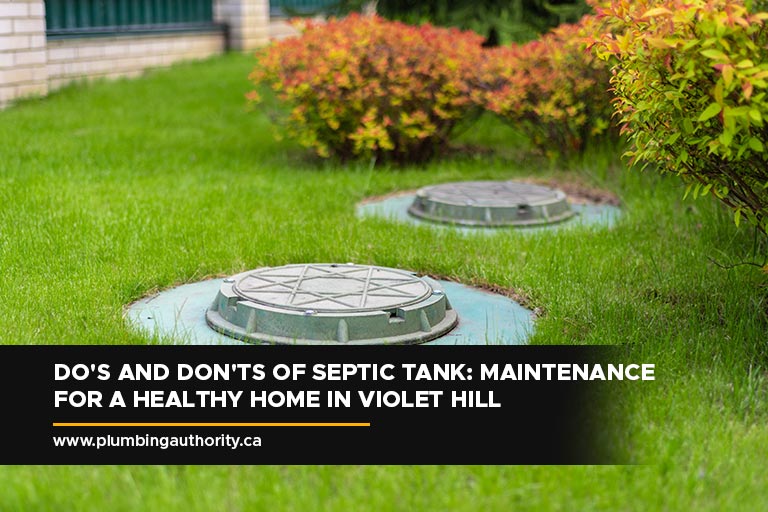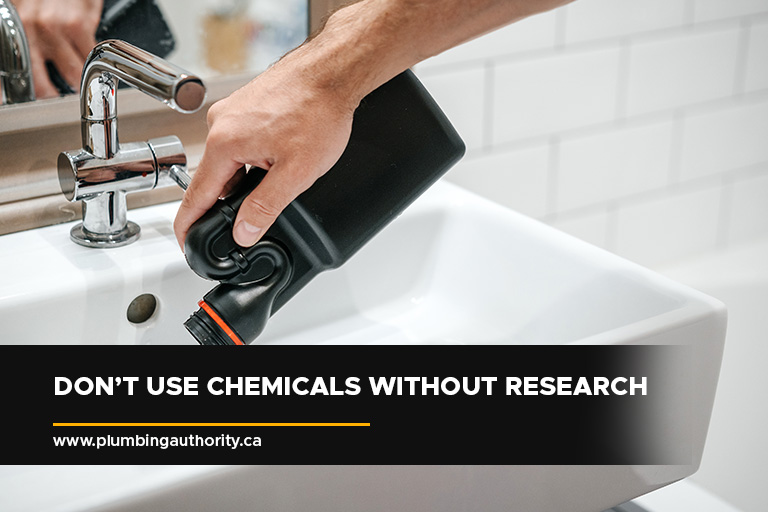
Managing a septic tank system effectively plays a pivotal role in maintaining the health and safety of your home in Violet Hill. This system, often out of sight and out of mind, requires regular attention and care to function correctly. By adhering to specific maintenance practices, homeowners can prevent costly repairs, environmental damage, and potential health hazards.
In Violet Hill, where the charm of rural living meets the responsibilities of home maintenance, understanding the intricacies of your septic system becomes even more crucial. Whether you’re new to the area or have been a long-time resident, the following guidelines will equip you with the knowledge to manage your septic tank effectively. Remember, a well-maintained septic system contributes to the overall well-being of your household and the community at large, keeping your home a pleasant and healthy place to live.
Key Do’s of Septic Tank Maintenance
Maintaining a septic tank system requires consistent effort and awareness. Here are essential practices to keep your system running smoothly:
- Regular Inspections and Pumping: Regular inspections and pumping by professionals every three to five years are crucial for septic tank maintenance. These procedures help in identifying and mitigating potential issues early on, ensuring the system’s efficient operation. Pumping out solids prevents tank overflow, blockages, and system failure, safeguarding the environment and your property.
- Efficient Water Use: Adopting water-saving measures in your home is vital for the longevity of your septic system. By installing high-efficiency fixtures and repairing leaks, you reduce the water volume entering the septic system, thus preventing overflows and potential malfunctions. Efficient water use contributes to the system’s durability and prevents environmental contamination.
- Proper Waste Disposal: Conscious disposal of waste is paramount in septic system maintenance. Flushing only human waste and toilet paper prevents clogs and damage to your system. Non-biodegradable items like wipes and feminine hygiene products can severely obstruct the system, leading to expensive repairs and environmental harm.
- Maintain Your Drain Field: The health of your drain field directly impacts the efficiency of your septic system. Avoiding the placement of heavy objects and vehicles on it prevents soil compaction and damage to underground pipes. Cultivating grass over the drain field helps in erosion prevention without hindering the system’s function.
- Avoid Harsh Chemicals: Harsh household chemicals disrupt the microbial balance essential for waste breakdown in the septic tank. Limiting the use of substances like bleach, paint, and motor oils, and ensuring their proper disposal, preserves the system’s biological process, essential for its efficiency and longevity.
- Use Bacteria Additives: Bacteria-based additives can be beneficial for your septic system’s health. They bolster the microbial balance needed for decomposing waste, enhancing the system’s performance. Regularly introducing these additives as part of your maintenance routine can improve waste breakdown and prevent system failures.
- Divert Rainwater Away: Proper management of rainwater runoff is essential to prevent septic system overload. By diverting water away from the septic area, you minimize the risk of system malfunction due to excessive water inflow. This ensures the system’s ability to function optimally, avoiding untimely repairs and environmental issues.
- Keep Records and Stay Informed: Maintaining detailed records of your septic system’s maintenance activities aids in its long-term management. Being informed about maintenance best practices and recognizing early signs of problems enables timely interventions. This proactive approach prevents major issues, ensuring the system’s reliability and efficiency.
Critical Don’ts of Septic Tank Maintenance

Don’t use chemicals without research
Avoiding certain practices is as important as the actions you take. Here are critical mistakes to steer clear of:
- Don’t Overload the System: Excessive water use strains your septic system, risking backups and failure. By spreading laundry days and fixing leaks, you reduce the water volume entering the system, preventing overloads. This practice is vital for the longevity and efficiency of your septic system, ensuring it operates smoothly without undue stress.
- Don’t Dispose of Harmful Substances: Disposing of oils, grease, pesticides, and chemicals down your drains can devastate your septic system. These substances not only kill the essential bacteria needed to break down waste but can also leach into and pollute your drain field. Such practices jeopardize both system functionality and environmental health.
- Don’t Use Additives Without Research: Some market-available additives promise to enhance your septic system’s performance but might not always deliver. Using the wrong additives can disrupt the system’s natural processes, causing more harm than good. Thorough research or professional consultation is essential before incorporating any additives into your system.
- Don’t Ignore System Warnings: Signs like slow draining, bad smells, or water pooling are your septic system’s cry for help. Ignoring these signs can escalate minor issues into major damages, necessitating expensive repairs. Prompt attention to these warnings can save you significant time and money by addressing problems early.
- Don’t Plant Trees Near the System: Tree roots are attracted to the moisture and nutrients in septic systems but can intrude and damage the tank and pipes. Planting trees at a safe distance ensures that your septic system remains undisturbed and functional, avoiding the costly repairs that root intrusion can cause.
- Don’t Drive Over the Drain Field: Driving or parking on the drain field compacts the soil and can crush the pipes below, leading to system malfunction or failure. Keeping the area clear from vehicles and heavy equipment protects the integrity of your drain field, ensuring proper waste filtration and system longevity.
- Don’t Construct Over the System: Construction over septic systems restricts access for necessary maintenance and risks physical damage. By keeping the area above your septic system clear, you ensure that maintenance can be conducted efficiently and without obstruction, safeguarding system functionality and accessibility.
- Don’t Neglect Maintenance: Regular inspections and pumping are not just recommendations but necessities for a functioning septic system. Neglect leads to system failures, environmental harm, and potentially expensive repairs. Committing to a maintenance schedule ensures your septic system remains effective and extends its service life, protecting your home and environment.
Maintaining your septic tank in Violet Hill is not just about protecting your investment; it’s about ensuring the health and safety of your home and environment. By following the do’s and don’ts outlined in this guide, you can keep your septic system functioning efficiently for years to come. Remember, when in doubt, consulting with a professional can provide peace of mind and prevent future issues.
If you require septic tank inspection, maintenance, or have concerns about your system, don’t hesitate to contact Plumbing Authority at (647) 992-7473. Our team of experts is ready to provide you with the assistance and advice you need to maintain a healthy, safe home in Violet Hill.




